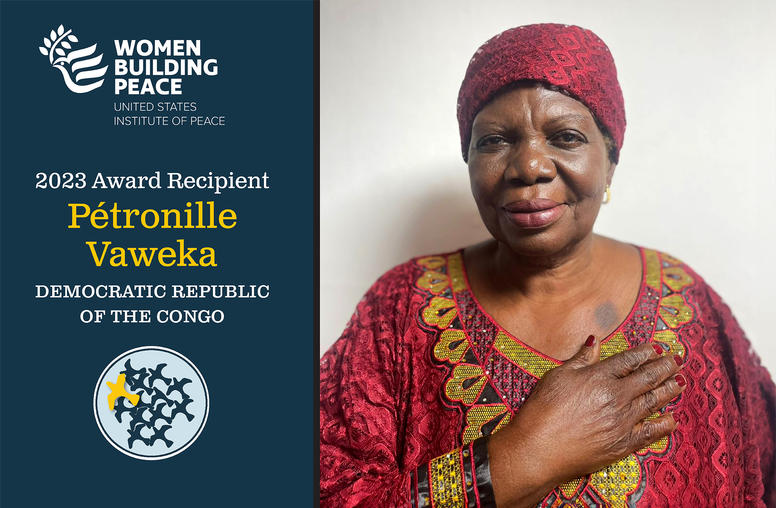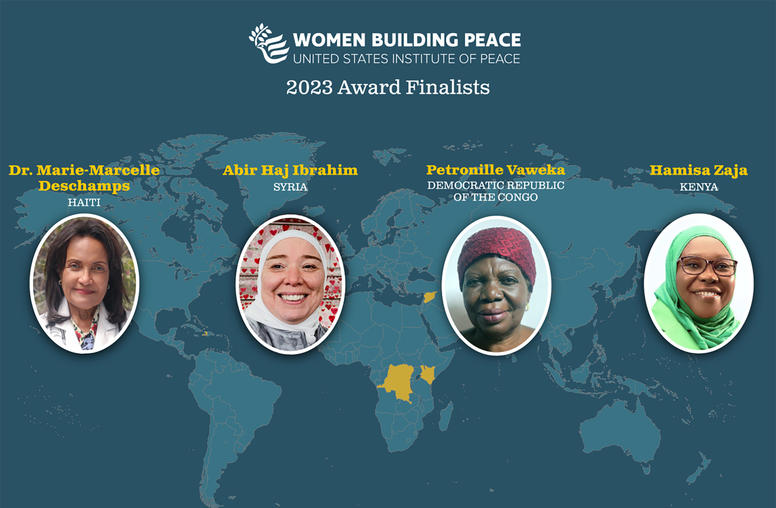United States Institute of Peace Announces New Director of Afghanistan-Pakistan Programs
Dr. Andrew Wilder will be joining the United States Institute of Peace as the Director of Afghanistan and Pakistan Programs in September 2010.
For Immediate Release, July 8, 2010
Contact: Lauren Sucher, 202/429-3822
lsucher@usip.org
Dr. Andrew Wilder will be joining the United States Institute of Peace (USIP) as the director of Afghanistan and Pakistan programs in September 2010. Dr. Wilder has most recently served as research director for Politics and Policy at the Feinstein International Center and as associate research professor for the Fletcher School of Law and Diplomacy at Tufts University.
"The Institute is very pleased to welcome Andrew Wilder, whose deep expertise and insight on governance, development and stabilization in Afghanistan and Pakistan will help guide USIP’s peacebuilding programs in the region," said Bill Taylor, vice president of the Center for Post-Conflict Peace and Stability Operations.
Dr. Wilder has served in many capacities in both Afghanistan and Pakistan since 1986, including director of Save the Children, and founder and director of Afghanistan's first independent policy research institution, the Kabul-based Afghanistan Research and Evaluation Unit (AREU). He has also held positions with the International Rescue Committee and Mercy Corps International.
Dr. Wilder holds a Ph.D. degree from the Fletcher School of Law and Diplomacy, Tufts University. His recent research has focused on issues relating to state-building and stabilization efforts in Afghanistan, specifically on the effectiveness of aid in promoting stabilization objectives in Afghanistan and Pakistan. He has also conducted extensive research on sub-national governance, elections, and police reform efforts in Afghanistan and on the politics of civil service reform in Pakistan.
Dr. Wilder is author of "The Pakistani Voter: Electoral Politics and Voting Behaviour in the Punjab" (Oxford University Press, 1999), and has written articles for publications including the Journal of International Affairs, Afghanistan Research and Evaluation Unit, Asian Survey, Foreign Policy, and The Middle East Institute.
Since January, 2008 USIP has maintained an office in Kabul, where staff monitor local USIP-awarded grants and work with Afghan civic and community leaders to strengthen reconciliation, increase governmental capacity and improve cooperation among organizations working in Afghanistan. USIP's Pakistan efforts combine research in Washington, D.C. with frequent meetings in Pakistan to improve mutual understanding between the U.S. and Pakistan, strengthen local capacity to resolve conflict and promote peacebuilding.
Additional Resources:
- USIP in Afghanistan
USIP is conducting a number of initiatives in Afghanistan to promote a secure environment, build the rule of law, strengthen public education and civil society, and promote a better understanding in the U.S. policy community of critical issues related to the country. - "Rebuilding Afghanistan's Political Immunity," Peace Brief
This Peace Brief highlights the importance of Afghanistan’s customary system of dispute resolution, and the need to increase recognition of and support for its work. - "Media and Peacebuilding in Afghanistan," Peace Brief
This report is based on a meeting of experts on media and conflict convened by the U.S. Institute of Peace’s Center of Innovation for Media, Conflict and Peacebuilding to consider opportunities and challenges for peacebuilding media in Afghanistan.

